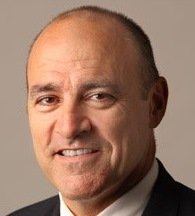
Must some people live with angina instead of getting it treated with stents or bypass surgery?
So many people live with stable angina rather than get stents or bypass surgery.
“It is rare that angina can’t be treated with stents or CABG in this day and age, but it does occur.” CABG stands for coronary artery bypass grafting,” says Dr. Michael Fiocco, Chief of Open Heart Surgery at Union Memorial Hospital in Baltimore, Maryland, one of the nation’s top 50 heart hospitals.
“Severe diffuse narrowings throughout the entire length of an artery may be untreatable with either method,” continues Dr. Fiocco.
“There are also cases not suitable for stents, but may be anatomically fine for CABG, but other medical conditions make CABG prohibitive (i.e., severe lung disease, terminal illness, etc.).
“There are patients whose angina is well-controlled with medication, and that is an appropriate treatment method as long as the patient is followed closely.”
In 2006, 10.2 million U.S. people were living with angina.
Angina is when there is restricted blood/oxygen flow to the heart due to narrowing and blockage of the coronary arteries.
Every year about 500,000 people in the U.S. are diagnosed with stable angina: Symptoms occur only upon physical exertion and sometimes mental stress.
That’s a lot of people living with a condition that seemingly could be corrected with stenting, angioplasty or bypass surgery, but obviously, that is not the case.
Dr. Fiocco continues, “Many patients control their angina for years with medication. Yes, they may have to curb their lifestyle (no chopping wood, running marathons, etc.), but this is an acceptable treatment regimen.
“If symptoms worsen, become more frequent or difficult to control, then they may need stenting or CABG.
“Some may have no choice but medical treatment due to other health problems or strictly based on coronary anatomy.
“Others prefer to avoid the more invasive procedures, which is acceptable as long as their symptoms remain stable.”
Medications used to treat stable angina are the following: aspirin, nitrates, beta blockers, statins, calcium channel blockers, ACE inhibitors, and ranolazine.
A person with angina should also make lifestyle changes, such as quitting smoking, losing weight, exercising and managing mental stress better.
The reason that coronary bypass surgery is not the treatment of choice for stable angina is because balloon angioplasty with stent placement has been shown to be an effective treatment, and of course, it’s not nearly as invasive as CABG.
Medications will still probably be necessary after the stenting.










































